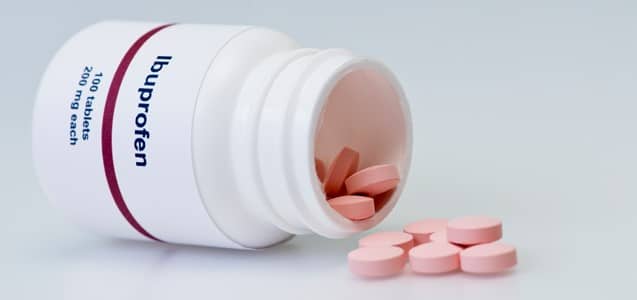
New Warning Labels for Non-Steroidal Anti-Inflammatory Drugs (NSAIDS)
In the wake of new research indicating increased risks of heart attacks and strokes, the FDA is requiring new warning labels for nonsteroidal anti-inflammatory drugs (NSAIDs), such as ibuprofen, which for years have been viewed largely as reliable, over-the-counter solutions to a myriad of common health problems.
On July 9th, 2015, the Food and Drug Administration (FDA) announced that they will create new boxed warnings to alert consumers of the severe health risks that may accompany taking products containing NSAIDs.
NSAIDs are found in many common, over-the-counter drugs that could be in your home’s medicine cabinet or first-aid kit right now. Common NSAIDs such as ibuprofen and naproxen can be found in pain medications such as:
- Motrin
- Advil
- Aleve
These types of anti-inflammatory and pain relieving drugs have a wide range of uses, and are used to treat conditions such as:
- Osteoarthritis
- Rheumatoid arthritis
- Gout
- Fever
- Muscle aches
- Tendonitis
- Common athletic injuries such as strains and sprains
- Menstrual cramps
- And more
Research shows, however, that NSAIDs are not nearly as safe as was previously believed. The new warnings indicate that, even within the first few weeks of using a new NSAID medication, patients can experience an increased risk of suffering a serious heart attack or stroke. It is now also believed that this risk may continue to increase the longer a patient remains on an NSAID medication. The FDA recommends that consumers keep the following facts in mind before taking an NSAID:
- Never take more than one type of NSAID at a time and do not mix medications.
- Carefully read and understand the warning labels on all medication before beginning treatment.
- If you have high blood pressure, have previously suffered a heart attack, stroke, or suffer from cardiovascular disease, be especially careful when taking NSAIDs and consult your doctor before taking these drugs.
The warnings also advise patients to stop taking NSAIDs and seek immediate medical attention if they experience any of the following symptoms, as they may be an indication of heart attack or stroke:
- Chest pain
- Trouble breathing or shortness of breath
- Slurred speech
- Shooting pain or weakness in one part or side of the body
Heart attack and stroke are a leading cause of death and disability in the United States. The Center for Disease Control estimates that approximately 735,000 Americans experience a heart attack every year, and another 795,000 people suffer a stroke. When prescription or over-the-counter medications are found to increase the average American’s likelihood of suffering one of these debilitating medical emergencies, it is vitally important that everyone is aware of the risks.
Heart attacks and strokes are life-threatening experiences and may result in permanent injury, loss of physical or mental capabilities, and a lifetime of care and treatment.
If you or a loved one has suffered from a heart attack or stroke that you believe was brought on by a defective, dangerous drug, call The Yost Legal Group right away.
Our experienced Baltimore Defective Drug and Personal Injury lawyers have years of experience. We represent people who have been injured after taking a medication that caused a serious adverse reaction.
Call 1-800-YOST-LAW (967-8529) today to speak with one of our experienced, compassionate Baltimore Defective Drug lawyers. We will provide a FREE, confidential and no-obligation consultation and will help you understand the details of your case.
At The Yost Legal Group, our attorneys have both the medical and legal knowledge necessary to provide the answers you seek.
The Yost Legal Group – Experienced Lawyers Dedicated to Protecting Your Rights